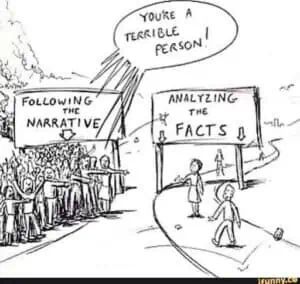"The charges are politically motivated!!"
"They have an agenda against me!!"
"She hates me!!"

Sound familiar? Sometimes these protests may well be true. But they're not a defence. And they won't protect you from the merits of the charges if there're sufficient facts to prove them.
So it's not a good legal strategy to focus first on motive with its usual companions – victimization, discrimination, bullying, vendetta, jealousy etc. And technical point-taking on frivolous procedural issues is a regular feature of the motive-before-facts strategy. The purpose is to avoid the facts and to obstruct the legal enquiry processes which could expose the uncomfortable truth.
Of course motive is important for context to explain the reason or the "Why?" accusations and allegedly false charges are made. For example, the existence of a hostile relationship between a boss and an accused employee is fertile context for malicious accusations. And sometimes a boss with nasty intent can indeed fabricate a narrative to set up an employee on trumped up charges. But the narrative and evidence must still be proved on the facts. If it's based lies, the evidence on the facts should expose the lie and the malicious intent – the motive.
The more effective legal strategy is to focus on the facts. The facts will expose the motive. The motive will not expose the facts.
All cases have a story line. Start with the chronology of events, the timeline to explain the sequence of events in the story. The timeline in itself can often reveal a logical explanation for how a sequence of events led to its conclusion. In this sense, the facts can "speak for themselves".
There may be a trail of reliable documentary evidence to show dates, times, events, and communications between parties – emails., letters, WhatsApps etc. This makes it easier to reach the logical conclusion on the What? leg of the enquiry.
If the conclusion passes muster with the rules of evidence and the cut and thrust of cross-examination, the facts may be proved on the probabilities. Only then is it time for the next leg to assess the Why? the story unfolded as it did – the motive.
If the facts do not prove the charges, the accuser could face serious consequences for making false accusations if there is evidence they were made with a malicious motive.
TIP: The more effective legal strategy for both the accuser and the accused is to first prove their conflicting narratives or stories on the facts before trying to prove the motive. Even if a motive is obvious or even admitted, the facts of the case must still be proved to establish liability.
Originally published 27 November 2023
The content of this article is intended to provide a general guide to the subject matter. Specialist advice should be sought about your specific circumstances.
